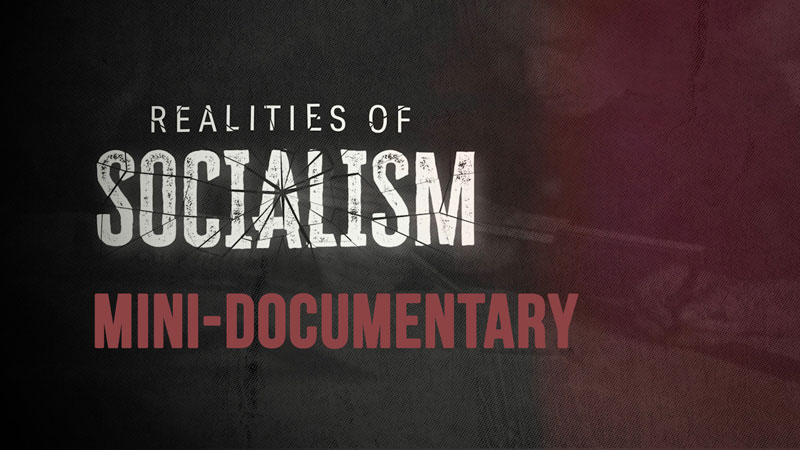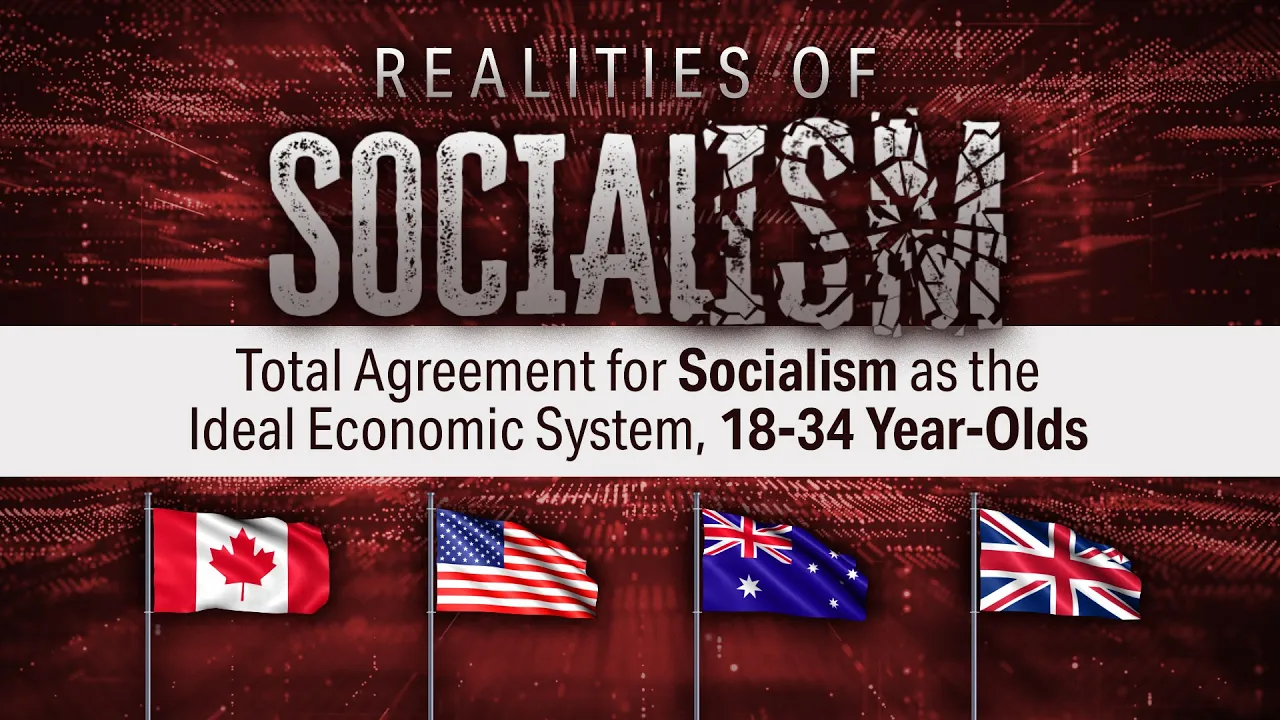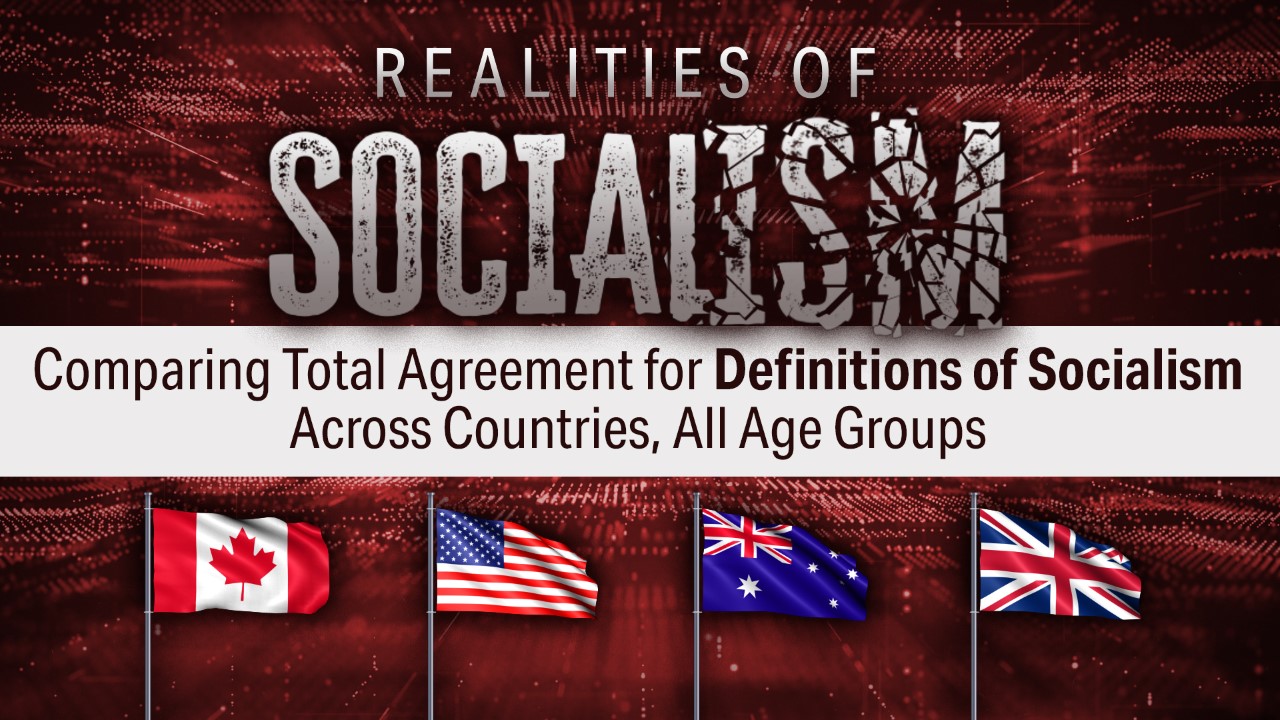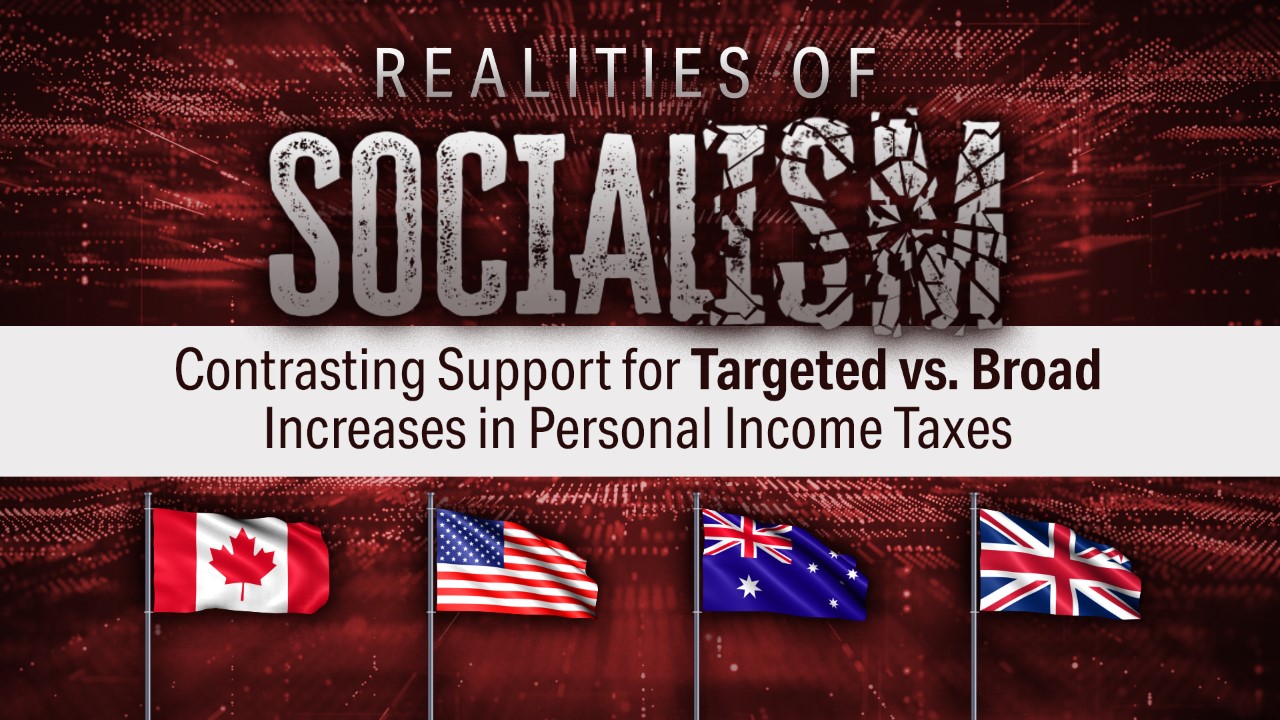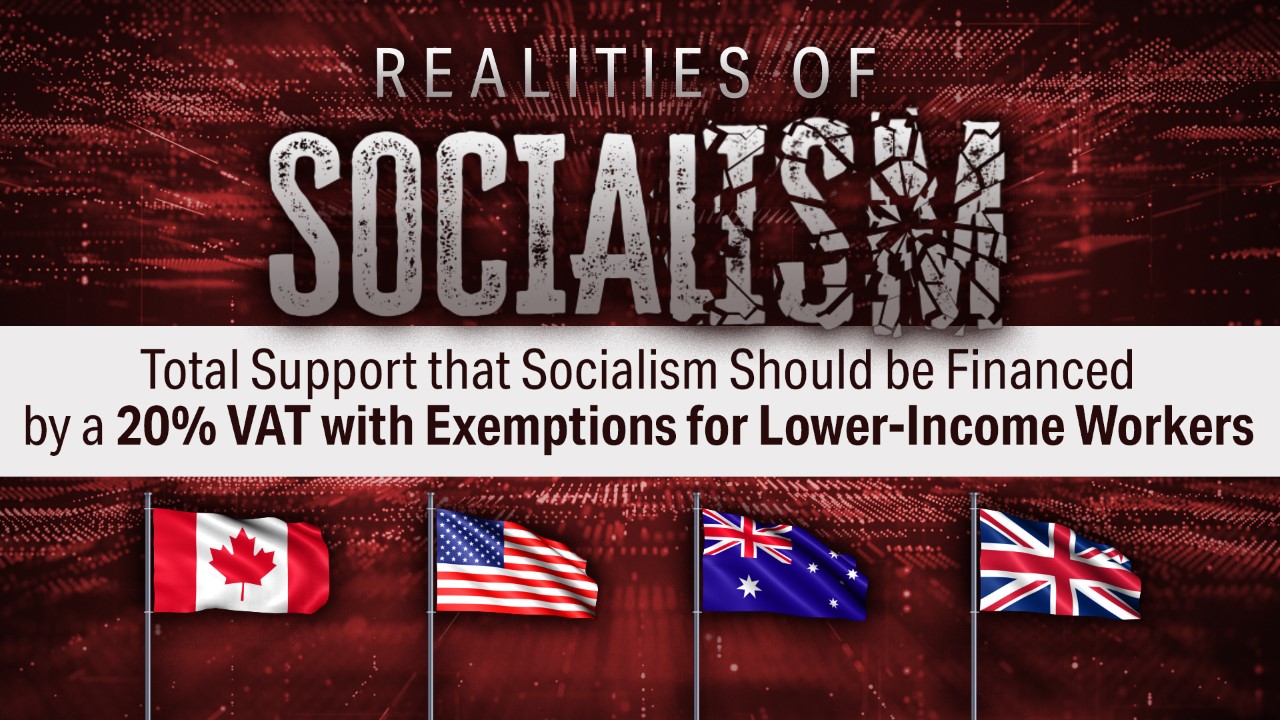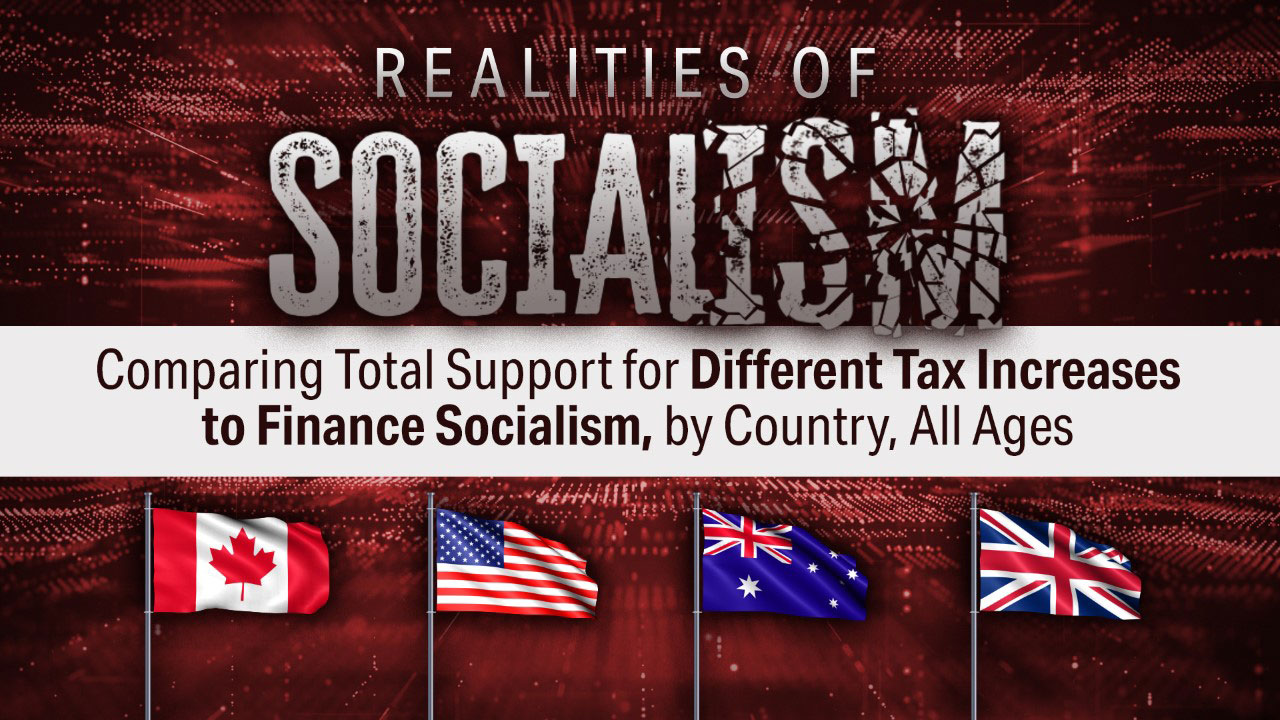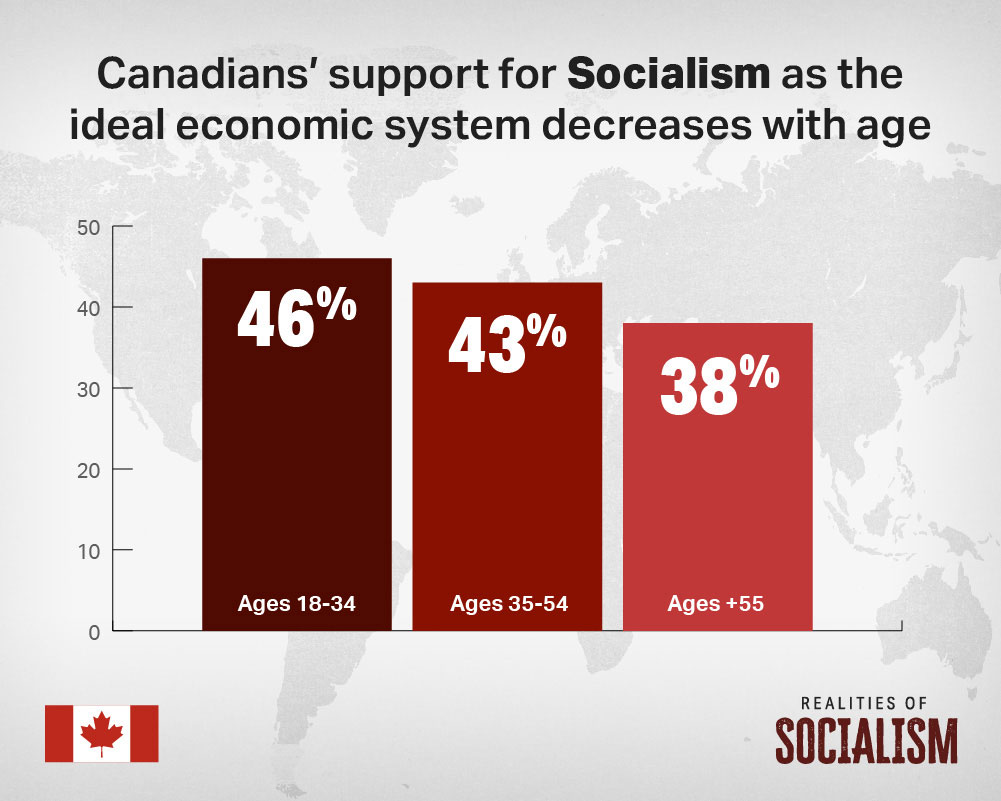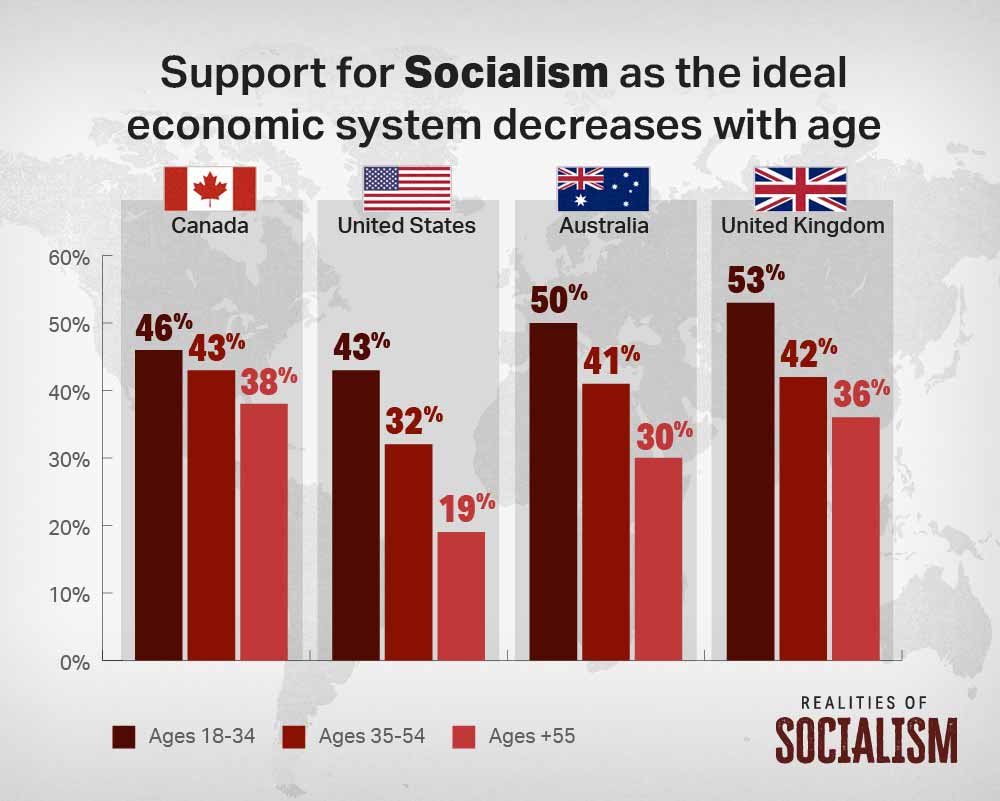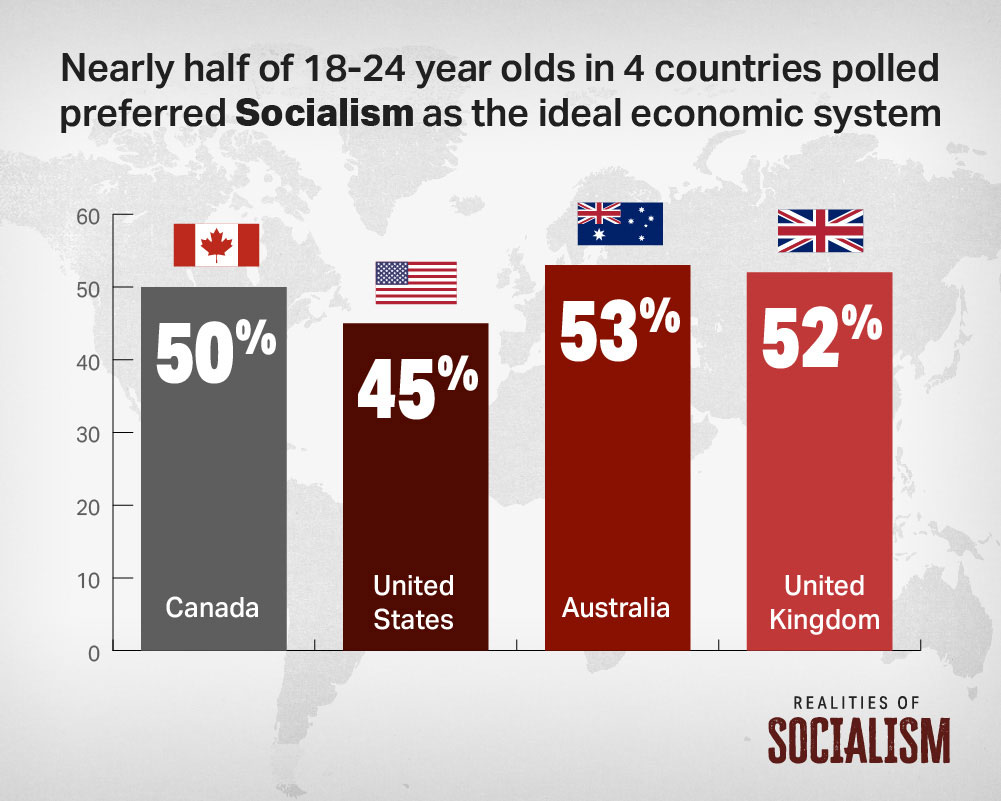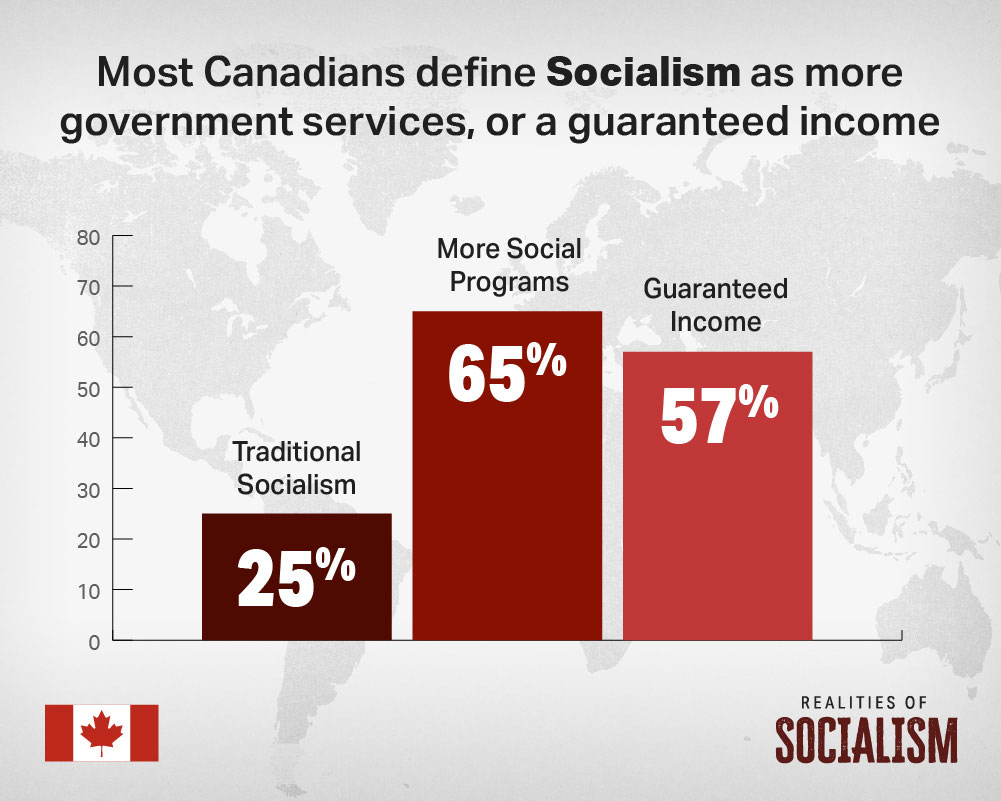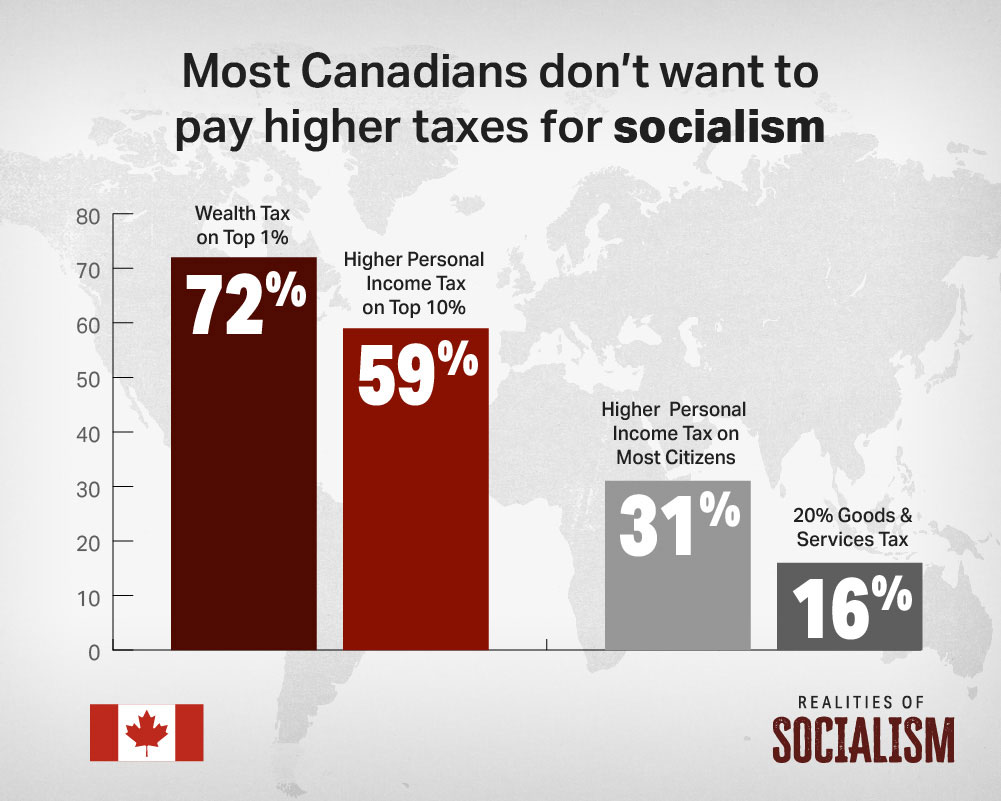Perspectives on Capitalism and Socialism | Mini-Documentary
The Wall St. Journal’s Mary O’Grady explores new polling data that finds a large percentage of young people in Canada, the U.S., Australia and Britain support socialism as their preferred economic system, but what most of them define as socialism is actually more government programs, but they’re not prepared to pay for them. This video is part of a new multimedia project, The Realities of Socialism, by the Fraser Institute in Canada, the Institute of Economic Affairs in the UK, the Institute of Public Affairs in Australia and the Fund for American Studies in the U.S.
More VideosPodcast
Realities of Socialism: Defining Capitalism vs. Socialism
Dr. James R. Otteson, Professor of Business Ethics at the University of Notre Dame, joins host Rosemarie Fike to discuss and define capitalism vs socialism to help better distinguish some popular beliefs about each from the reality people experience living under each system—including basic human rights, access to education and services, as well as major shifts in global poverty rates.
Realities of Socialism: Polling Perspectives on Socialism
Jason Clemens, Executive Vice President of the Fraser Institute and co-author of Perspectives on Capitalism and Socialism: Polling Results from Canada, the United States, Australia, and the United Kingdom, joins host Rosemarie Fike to discuss why younger people poll in favour of and seem so drawn to the idea of socialism compared to the reality most face under socialist states. They even get into conceptual thinking versus results and why the polling data rejects the Scandinavian model.
Videos
Infographics
- All
Explore the book
This study was done in conjunction with Leger and included surveying respondents in Canada, the United States, Australia, and the United Kingdom in the fall of 2022. The survey and this report are structured around three distinct sets of questions. The first section of this study examines perceptions of and support for capitalism and socialism. The second section identifies how respondents define socialism. The final section assesses respondents’ preferences for different tax increases to pay for socialism.
1. Perceptions of and Support for Capitalism and Socialism
One major objective of this study is to better understand perceptions of and support for capitalism and more importantly socialism, as well as how attitudes towards capitalism and socialism differ across age groups, particularly those of respondents under age 35 compared to older respondents.
Support for capitalism amongst those aged 18–34 is at best tepid outside of the United States. The total agreement versus total disagreement on whether capitalism is the ideal economic system is essentially identical in Canada and Australia. The United States shows a net positive level of support for capitalism as the ideal economic system among those aged 18–34, with 52 percent in agreement versus 33 percent in disagreement—a net positive difference of 19 percentage points. The United Kingdom is the only other country to record a meaningful net positive view of capitalism, at 9 percentage points.
Agreement that capitalism is the ideal economic system clearly increases with age across all countries except in the United Kingdom, where there is no discernible difference in responses across age groups. The most pronounced increase based on age is in Canada, where agreement that capitalism is the ideal economic system increases from 39 percent of respondents for those 18–34 to 60 percent for those aged 55 and over.
Support for socialism as the ideal economic system is strongest amongst those aged 18–34 regardless of country. The total agreement (strongly agree and agree) that socialism is the ideal economic system amongst the 18–34 age cohort ranged from 43 percent in the United States to 53 percent in the United Kingdom.
Support for socialism as the ideal economic system declines as age increases and conversely, opposition to socialism increases as age increases across all countries covered in the survey.
Crucially, unlike the responses for capitalism, there is a clear net preference for socialism amongst those aged 18–34 in all countries, although this net preference is markedly weaker in the United States at just 3 percentage points. In the United Kingdom, on the other hand, 53 percent of young people (aged 18–34) agree that socialism is the ideal economic system versus only 27 percent in disagreement for a net preference for socialism of 26 percentage points. A comparably strong net preference for socialism is also reported for both Australia (50 percent vs. 30 percent) and Canada (46 percent vs. 29 percent).
Perhaps most indicative of broad support for socialism among respondents is the fact that all age groups across all four countries agreed, to varying extents, that a transition to socialism would improve the economy and well-being of their citizens. This agreement was more pronounced across most age groups in Australia than in the other three countries, but respondents in all four countries indicated relative support for the idea that socialism would result in an improved economy and enhanced well-being of citizens. However, the strength of the view that socialism would improve the economy and well-being of citizens decreased with age in all four countries.
2. Defining “Socialism”
Three alternative definitions of socialism were provided to respondents. Several key insights can be drawn from how respondents defined “socialism”. First, support for the traditional definition of socialism as the state owning the means of production, or as phrased in the survey as “the government taking control of companies and industries so that the state rather than individuals control the economy”, had the least support of the three definitions provided. This traditional definition of socialism failed to garner more than 40 percent total agreement (total of all age groups) in any of the countries.
The second definition, socialism as the government providing more services to people, received the highest level of total agreement (total of all age groups) in three countries (Canada, the United States, and Australia), with agreement ranging from 55 percent in the United Kingdom to 65 percent in both Canada and Australia.
The level of total agreement for the third definition of socialism, wherein the government provides a minimum level of guaranteed income to its citizens, was close to the results for the second definition, i.e., government providing more services. In most cases, the level of total agreement that socialism is best defined as government providing a minimum guaranteed income (total of all age groups) trailed behind the level of total agreement for socialism defined as the government providing more social services by approximately 10 percentage points. The exception is the United Kingdom, where the third definition received slightly higher total agreement (57 percent) compared to the second definition (55 percent). However, in all cases, the third definition exceeded the level of total agreement for the traditional definition of socialism.
These results hold, albeit at higher levels of support, when only respondents supporting socialism are included in the analysis. For additional information, please see the data in Appendices A4.1 through A4.7.
It’s clear that respondents were defining socialism as an expanded role for the state, either in providing more services and/or in guaranteeing a minimum level of income.
3. Paying for Socialism
This final section focuses on questions about how to pay for a larger government. Specifically, four different tax proposals were provided to respondents. The total level of support is highest for the two targeted tax increases, namely a new wealth tax imposed on the top 1 percent of high-income citizens and a new higher personal income tax imposed on the top 10 percent of income earners. This is an important observation, because it’s likely that in answering this question, the vast majority of respondents assumed that the tax increase would not affect them.
Across all age cohorts, the level of total support for the wealth tax ranges between 66 percent in the United States and 72 percent in both Canada and Australia. The level of total support falls, although it is still quite high, for a new higher personal income tax imposed on high income earners, ranging from 53 percent in the United Kingdom to 59 percent in Canada.
The two broad-based tax increases, specifically an increase in personal income taxes for most citizens (with exceptions for lower-income workers) and a 20 percent VAT (with exemptions for lower-income workers) garnered much lower levels of total support in all four countries. Again, this is an important insight because most respondents likely assumed that they would be affected by these two tax increases, both of which received much lower levels of total support than for the targeted tax proposals.
The proposed broad-based personal income tax increase received less total support than the proposed targeted personal income tax increase for the top 10 percent, but it garnered higher total agreement that the 20 percent VAT option. Specifically, the total support (total for all age groups) for a broad-based increase in personal income taxes ranged from 31 percent in Canada to 39 percent in Australia. The 20 percent VAT option received the lowest level of total support amongst the four tax options, ranging from 16 percent in Canada to 29 percent in the United States.
These results again hold when only respondents favouring socialism are included in the analysis, although the levels of support for all four tax increases are higher than they are for all respondents.
Summary
In summary, there is less support for capitalism across most age groups in most countries compared to the support for socialism amongst the younger age group (18–34). Support for capitalism and opposition to socialism generally increase as age increases. The definition of socialism favoured by respondents is different from its traditional meaning. Indeed, the traditional definition received the lowest level of support. Respondents primarily identified socialism as entailing more government spending and provision of services and/or providing a guaranteed level of minimum income.
Critically, the results suggest that no age group in any of the surveyed countries indicated a general willingness to pay for the costs associated with their favoured definition(s) of socialism. The two broad-based tax increases, specifically a large increase in personal income taxes (with exceptions for lower-income workers) and a 20 percent VAT (with exemptions for lower-income workers) received by far the lowest levels of total support. At the same time, the two targeted tax increases, namely a new wealth tax imposed on the top 1 percent and a higher personal income tax imposed on the top 10 percent garnered strong support. The clear implication is that a large proportion of supporters of socialism, defined as higher levels of government for expanded and new programs and/or transfers to provide a guaranteed minimum of income, want someone else to pay for the associated costs. This finding generally holds even when the group of respondents is narrowed to include only those people who identify socialism as the ideal economic system.







